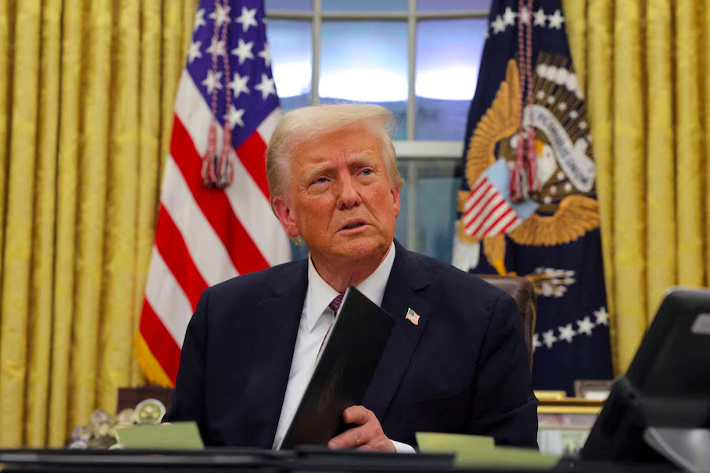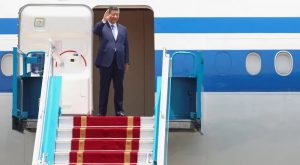Markets across Asia were on edge on Wednesday after US President Donald Trump said he was planning to impose tariffs “in the neighborhood of 25%” on imports of autos, chips and pharmaceuticals.
Asian nations, ranging from Japan and India to South Korea and Taiwan, export products across all three of those industries to the United States, and have already been stumbling under the pressure of increasing tariff threats from Trump.
Concern over levies on major Asian exports to the US left investors jittery, pulling MSCI’s broadest index of Asia-Pacific shares outside Japan down 0.12%.
Also on AF: VW’s $1.4bn Tax Bill Clouds Foreign Firms’ India Ramp Up Plans
Japan’s Nikkei index also pared its early morning gains to end the day down by 0.3%.
The muted performance of Asian stocks was a contrast to overnight moves of the S&P 500 and European shares, with both ending on record highs despite escalating concerns of a global trade war.
Trump has previously said levies on automobiles would come as soon as April 2, the day after members of his cabinet are due to deliver reports to him outlining options for a range of import duties as he seeks to reshape global trade. The impact of those levies would be felt across Asia.
Japanese auto, chip giants at risk
Japanese automakers such as Toyota, Honda Motor, Nissan and Mazda are all major exporters to the US. All of them already face potential tariffs of 10% on their imports to the US through Mexico.
The risk of even higher levies meant the automakers were among the biggest drags on Japan’s Nikkei index. The auto index slipped 1.5%.
While the case is the same for Korean automakers such as Hyundai and Kia, shares in the country were the only outliers in the region with solid gains of 1.7%.
Korean shares gained on the back of strong rally in technology stocks even as the country faced the risk of levies on its chip exports as well.
Meanwhile, mood was more downcast in Korea’s Asian chip rival Taiwan, where markets ended lower by 0.26%. TSMC, the world’s biggest contract chipmaker and the most heavily weighted stock on the Taiwan Weighted index, slipped nearly 1%.
However, analysts hoped that with tariffs not set to come into force until April, there would “some time for negotiations” between Taiwan and the US.
Tough days for Indian investors
In India, where markets have been struggling since Trump’s election victory, investors weren’t in for much relief as auto and pharmaceutical stocks led benchmarks lower.
A 25% levy likely hit India’s sprawling pharmaceutical industry, where most Indian generic drugmakers count the US as their largest market. For most major Indian pharma companies, revenues from North America account for between 30% to 50% of their total.
An index of Indian pharmaceutical company shares slid 2% to its lowest level in seven months on Wednesday.
The new levies will be an added injury for India which already faces potentially some of the highest tariffs under reciprocal levies planned by Trump.
Concerns on Trump tariffs have pushed India’s benchmark indexes as much as 13% lower from record high levels hit in September.
Foreign portfolio investors (FPIs) have sold Indian shares worth $12.3 billion so far in 2025, inching close to the $16.5 billion sell-off seen in all of 2022. That was the highest foreign outflow from India in at least a decade.
- Vishakha Saxena, with Reuters
Also read:
Fears of Reciprocal Trump Tariffs Wipe $180bn Off Indian Stocks
India Looking at Possible Trade Deal With Trump, Sources Say
Taiwan, White House Concerned on Potential TSMC Stake in Intel
Taiwan, Korea on Edge as Trump Sets Sight on Chip Funding
Trump’s ‘No Exemption’ Tariffs Rattle Chinese Steelmakers
US-China Trade War Goes Into Gear as Beijing’s Tariffs Kick In
Taiwan Hopes US’ Need For Chips Will Save it From Trump Tariffs
Enemy to Frenemy: West Revisits China Ties on Trump Uncertainty
























